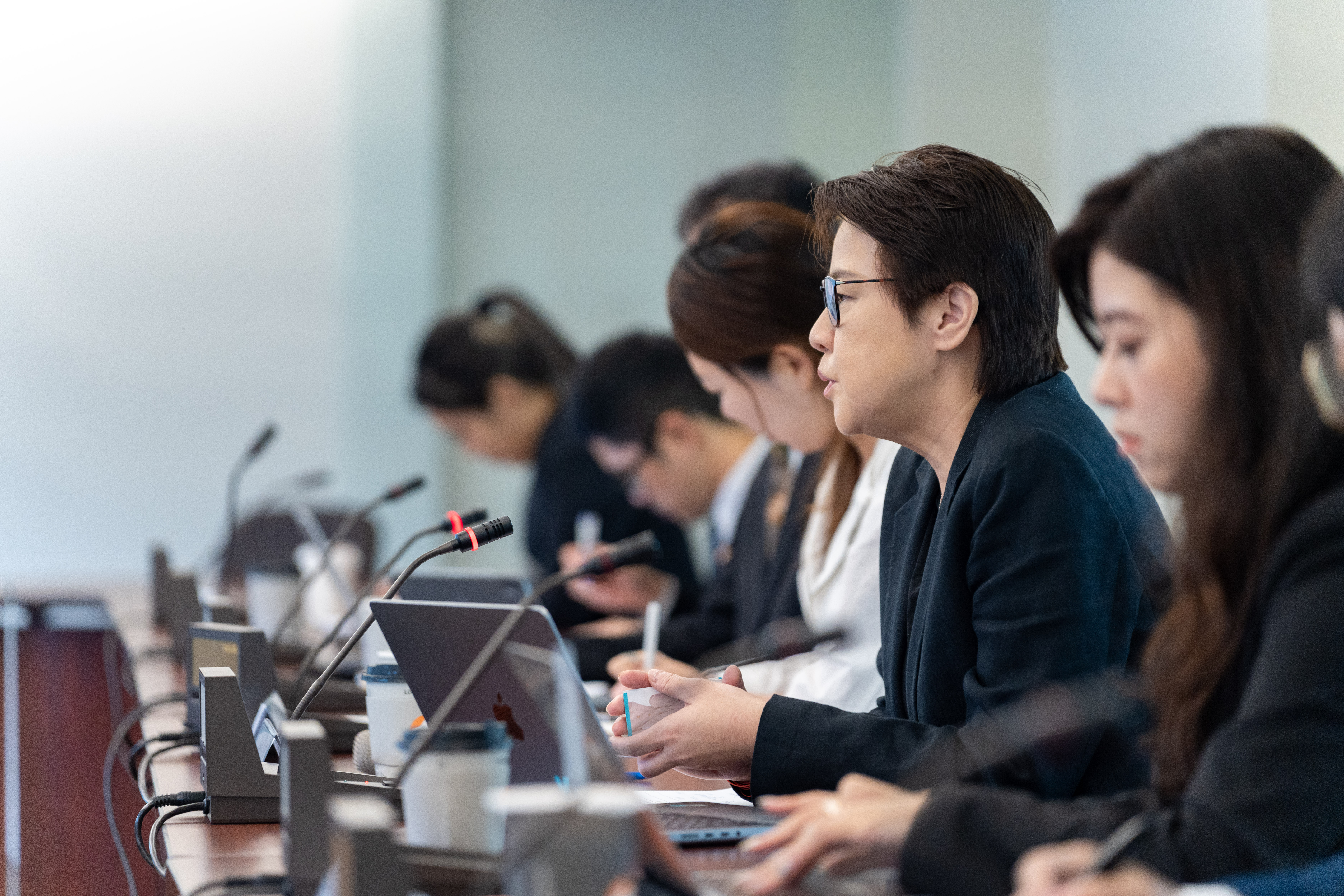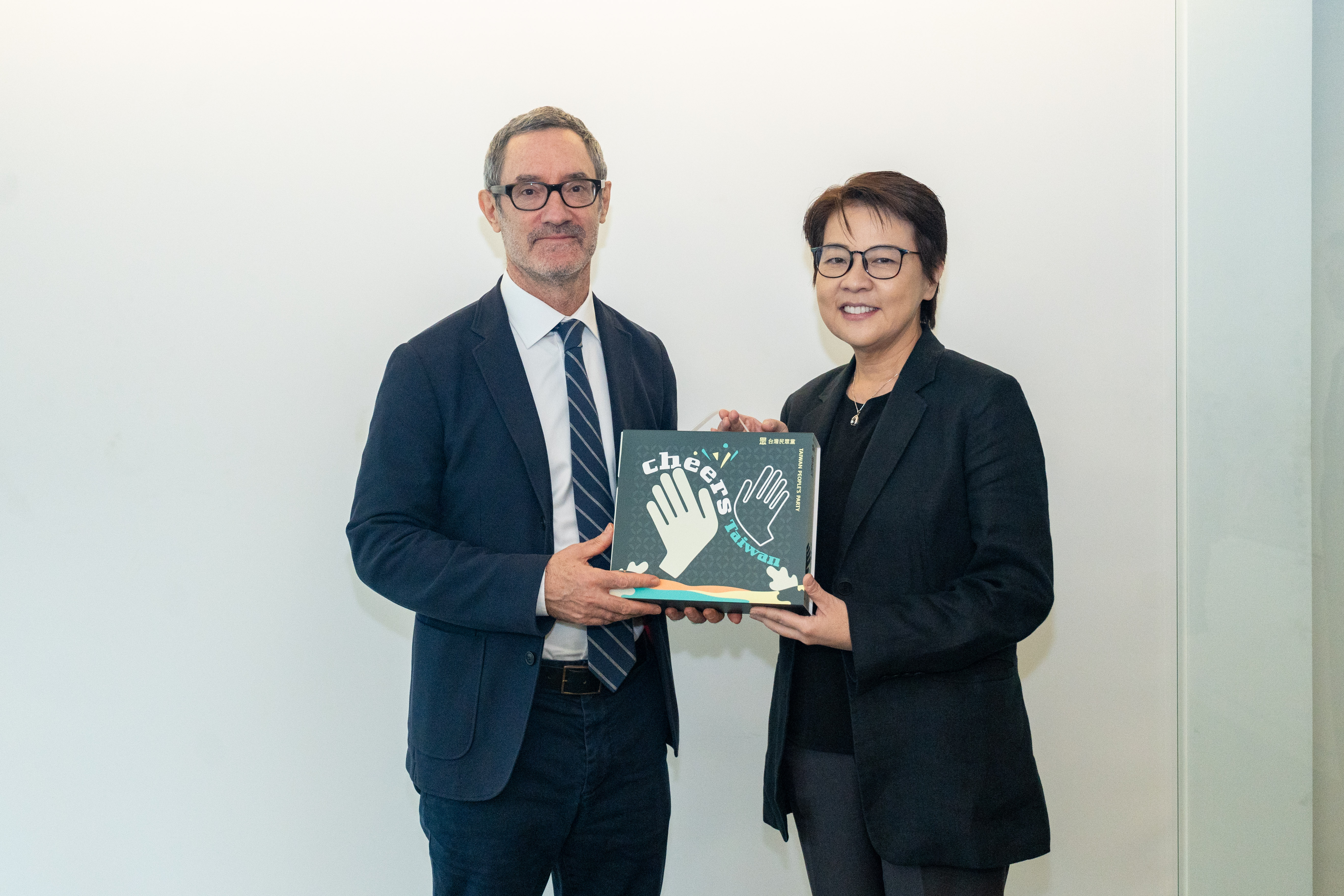Taiwan People's Party Hosts European Think Tank Delegation
On the morning of October 9th, Taiwan People's Party (TPP) welcomed a delegation of scholars from European think tanks led by Noah Barkin, a senior visiting fellow with the Indo-Pacific program at the German Marshall Fund. The delegation, comprised of scholars from Germany, Latvia, Sweden, Hungary, Lithuania, Slovakia, the Czech Republic, Poland, and Austria, met with key TPP leadership, including Commissioner of External Affairs of Chairman's Office, Chou Tai-chu, Director of the Department of Foreign Affairs, Judie Lin, and legislator Huang Shan-shan. The hour-long meeting facilitated a lively exchange of views on the current international landscape and Taiwan's political situation.
During the discussion, TPP reaffirmed its commitment to transparency, civic engagement, and open governance. The party emphasized its focus on fostering an inclusive society and maintaining staunch support for the rule of law and democratic governance in Taiwan. Legislator Huang Shan-shan highlighted Taiwan's progress in democratic development over recent decades but noted that there is still much to learn from European countries. She pointed out that Taiwan's electoral system poses a hindrance to the development of minor parties and that severe partisanship in the legislature calls for a shift from confrontation to communication. Huang stressed that dialogue, rather than confrontation, should guide political discourse, arguing that the ruling party should not resort to vilifying the opposition parties to avoid addressing real issues.

Taiwan People's Party, which garnered 22.07% of the vote in the 2024 presidential election, has solidified itself as the third key player in Taiwan's political landscape. Huang pointed out that much of the party's support comes from young voters, who appreciate TPP's pragmatic approach to problem-solving and its resistance to ideological constraints. She noted that young Taiwanese are eager for alternatives beyond the dominance of the island's two traditional political parties. The rise of social media has also helped TPP connect with the internet generation, expanding its appeal among younger demographics. However, Huang expressed concern over the current administration's grip on mainstream media, which has led to biased public discourse, particularly in high-profile legal cases. She warned that the influence of specific media outlets, councilors, and online shills and propagandists in shaping public opinion before legal cases are concluded poses a significant threat to Taiwan's rule of law and democratic integrity.
On cross-strait relations, TPP reiterated its stance: "Taiwan Sovereignty, Cross-Strait Peace." As Taiwan's second-largest indigenous political party, TPP remains dedicated to defending the sovereignty of the Republic of China and strengthening the nation's defense capabilities. At the same time, it advocates for maintaining channels of communication to ensure stability in Cross-Strait relations.
We are delighted to welcome prominent scholars from European think tanks to discuss international affairs and deepen our democratic values. Together, we're committed to transparency, communication, and strengthening Taiwan's democracy!




